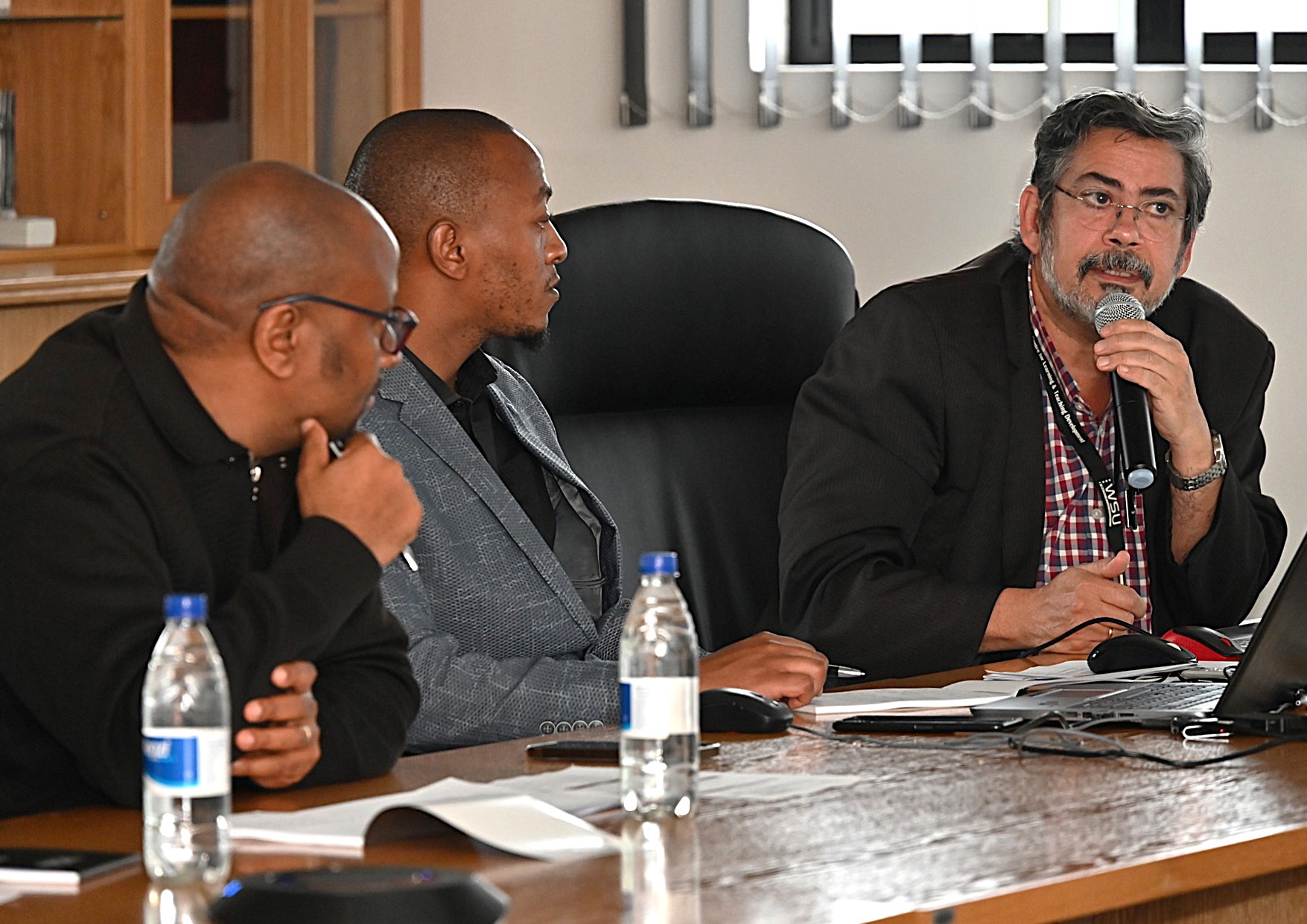WSU HEALTH FACULTY REFLECTS ON ITS EFFORTS AS IT BRACES FOR NEW DEVELOPMENTS TO STRENGTHEN EC HEALTHCARE

The Academic Governance Committee (AGC) in the Faculty of Medicine and Health Sciences held its second ordinary sitting in 2024 to review key academic initiatives aligned with WSU's commitment to the health and well-being of the Eastern Cape province.
Led by the Executive Dean, Prof Wezile Chitha, the AGC plays a critical role in evaluating academic planning, approving new programs, monitoring existing academic initiatives, and ensuring that these align with both institutional goals and regional needs.
“Our focus with the Academy Health platform has been on its readiness, appropriateness, and accreditation. It’s crucial that all stakeholders understand our purpose as we build this platform—not just as a tool, but as a resource equipped with skilled personnel, especially in our labour-intensive healthcare field,” said Chitha.
Amongst the key issues discussed is the shift of clinical training responsibilities from the Gqeberha platform to the Eastern and Central Deaneries, providing more local training opportunities to meet the province's needs.
This also covers the introduction of new academic programs, including Dentistry, Postgraduate Diplomas, and Master of Public Health tracks, which expand healthcare education in fields essential for local health challenges.
Chitha said, “We aim to meet global standards to create a truly competitive platform. From an academic planning perspective, this process involves addressing current and future program challenges, particularly as we look at developments over the next 5 to 12 years.”
The discussions focused on the establishment of educational centres, including the Institute for Clinical Governance & Healthcare Administration designed to tackle both regional and global health challenges through focused research and community engagement.
This year, the faculty inaugurated the Clinical Research, Academic Development, Leadership, and Education (CRADLE) which facilitated the first research winter school designed to enhance research skills and knowledge for researchers and postgraduate students.
To address gaps in the surgical care for underserved populations in the province, the Department of General Surgery proposed the establishment of a global Surgery Unit at WSU which will focus on enhancing access to specialised surgical care and promote global health equity through sustainable healthcare solutions.
“Underserved populations in the Eastern Cape often experience barriers to accessing timely and quality surgical care, leading to increased morbidity and mortality rates. The lack of resources, infrastructure, and trained personnel further exacerbates the healthcare disparities in the region,” presented senior lecture, Dr Radhakrishnan Jayakrishnan.
In the interest of finding solutions tailored for underserved communities, the Department of Human Biology announced its intention to establish the Indigenous Health System Research Institute (IHSRI) which will bridge the gap between traditional medicine and modern scientific research, focusing on exploring and validating indigenous knowledge systems to develop pharmaceutical drugs.
Explaining the need of this institute, the HOD, Prof Constance Sewani-Rusike said, “The Eastern Cape, like much of South Africa, faces a high burden of communicable and non-communicable diseases, with many relying on indigenous medicines, supported by growing anecdotal evidence of their efficacy.”
She added, “The anecdotal efficacy and bioactivity of many traditional medicines necessitate rigorous scientific research to validate and leverage this knowledge for developing and commercialising drugs, making it crucial to intensify the exploration, testing, and patenting of these medicines in collaboration with indigenous knowledge holders in the Eastern Cape.”
Meanwhile, the department of Public Health announced its intentions to establish a WSU Society and Health Research Institute and the Centre for Human Resources for Health Intelligence to reinforce its intentions to scan for emerging healthcare threats both locally and on the global stage.
By Ongezwa Sigodi
